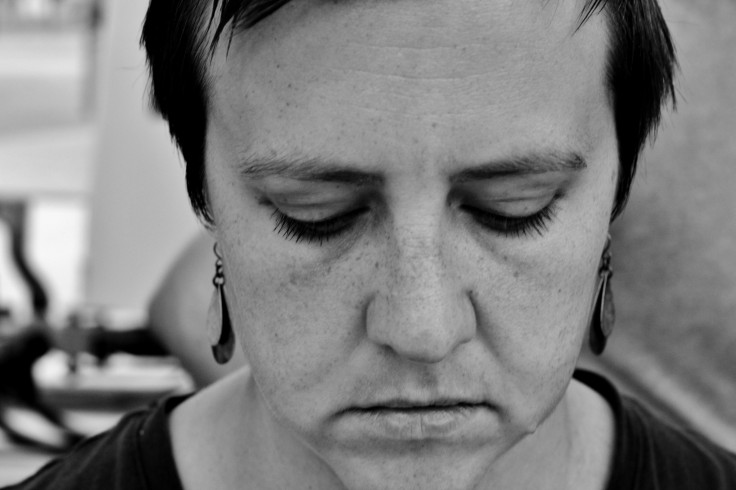Migraine Headaches Are More Frequent Among Women Going Through Perimenopause, Approaching Menopause

It’s not your imagination, ladies — migraines really do get worse as you get older. A new study from researchers at the University of Cincinnati (UC) Montefiore Headache Center, Albert Einstein College of Medicine, and Vedanta Research suggests migraine headaches get more aggressive as women approach menopause.
"Women have been telling doctors that their migraine headaches worsen around menopause and now we have proof they were right,” said Dr. Vincent Martin, professor of internal medicine in UC’s Division of General Internal Medicine and co-director of the Headache and Facial Pain Program at the UC Neuroscience Institute, in a statement.
The risk for having a headache more than 10 days per month, called high-frequency headaches, increased by almost 60 percent in middle-aged women with menopause during the transitional period into menopause, which is marked by irregular menstrual cycles (perimenopause) compared to normally cycling women.
Martin teamed up with Dr. Richard Lipton, Dr. Jelena Pavlovis, and Dr. Dawn Buse from Montefiore headache Center and Albert Einstein College of Medicine, and Dr. Kristina Fanning and Dr. Michael Reed from Vedanta research to conduct the study. The research involved 3,664 women who experienced migraine both before and during their menopausal years. Menopausal years included both perimenopause and menopause, the latter of which begins when a woman has not had a menstrual period for one year.
“Changes in female hormones such as estrogen and progesterone that occur during the perimenopause might trigger increased headaches during this time,” said Dr. Lipton, the director of Montefiore Headache Center and professor and vice chair of neurology, and the Edwin S. Lowe Chair in Neurology, Albert Einstein College of Medicine.
The later stage of perimenopause, during which women experience low levels of estrogen and skipped menstrual periods, was the time during which risk of headache was most apparent. Martin pointed out that women in the study reported that high-frequency headaches increased by 76 percent during menopause, but researchers don’t necessarily believe this is the direct result of hormonal changes. Rather, they said, it may be due to medication overuse that commonly occurs during this time.
“Women as they get older develop lots of aches and pains, joints and back pain and it is possible their overuse of pain medications for headache and other conditions might actually drive an increase in headaches for the menopause group.” Martin said.
Approximately 12 percent of the U.S. population experiences migraine, and women suffer from the condition three times more frequently than men. There is help available, though, for women approaching menopause and suffering from migraine.
“Physicians can prescribe hormonal therapies that level out these changes that occur during perimenopause and menopause time periods,” said Dr. Jelena Pavlovic, co-author of the study and attending physician in neurology, Montefiore, and assistant professor of the Saul R. Korey Department of Neurology, Einstein. “If the patient is in early perimenopause, you can give birth control pills that level things out. If they are in the late perimenopause and they start skipping periods, they can be put on estrogen patches.
Source: Martin V, Pavlovic J, Fanning K, Buse D, reed M, Lipton R. Perimenopause and Menopause Are Associated With High Frequency Headache in Women With Migraine: Results of the American Migraine Prevalence and Prevention Study. Headache: Journal of Head and Face Pain. 2016.



























